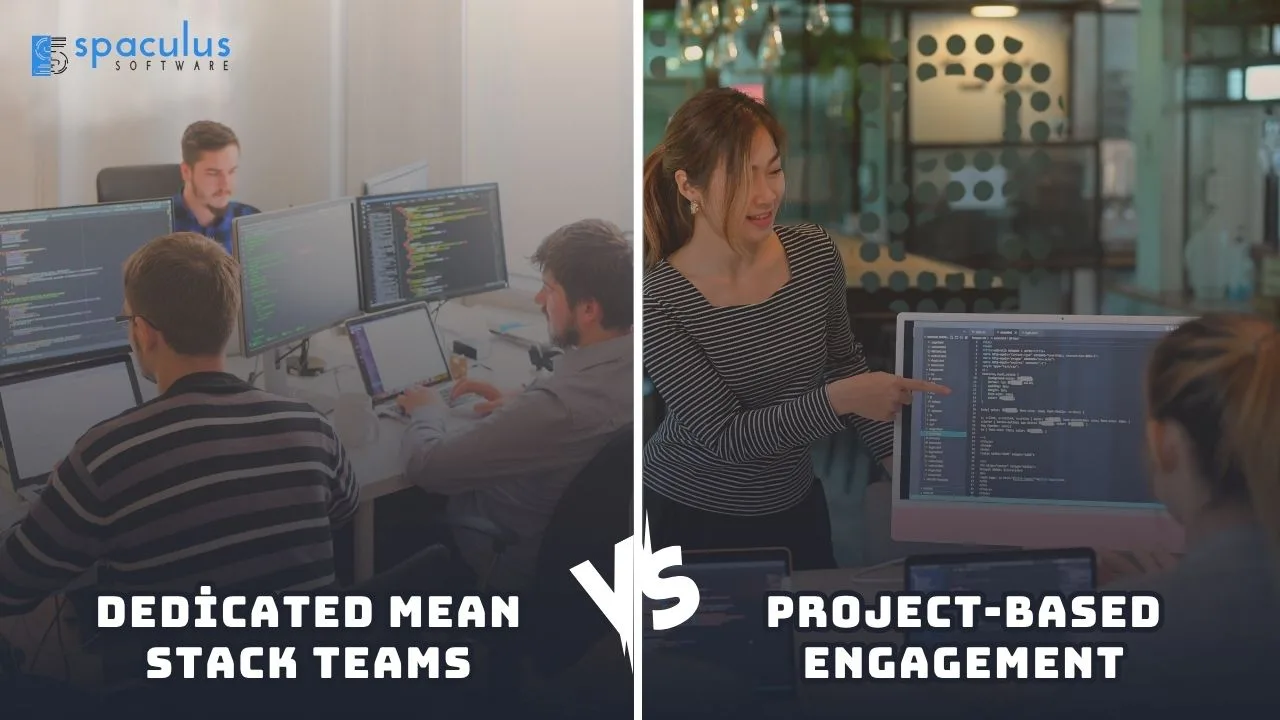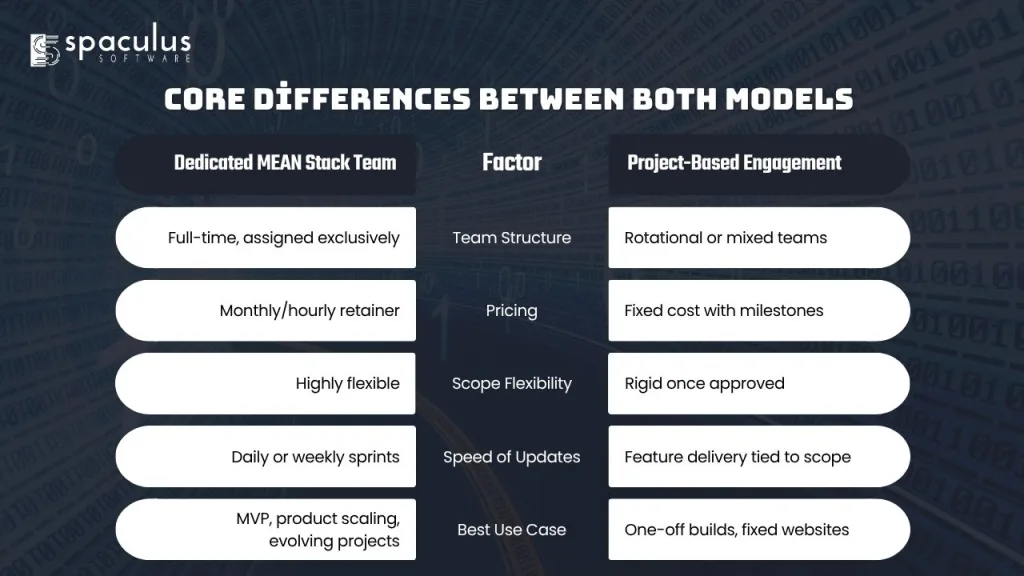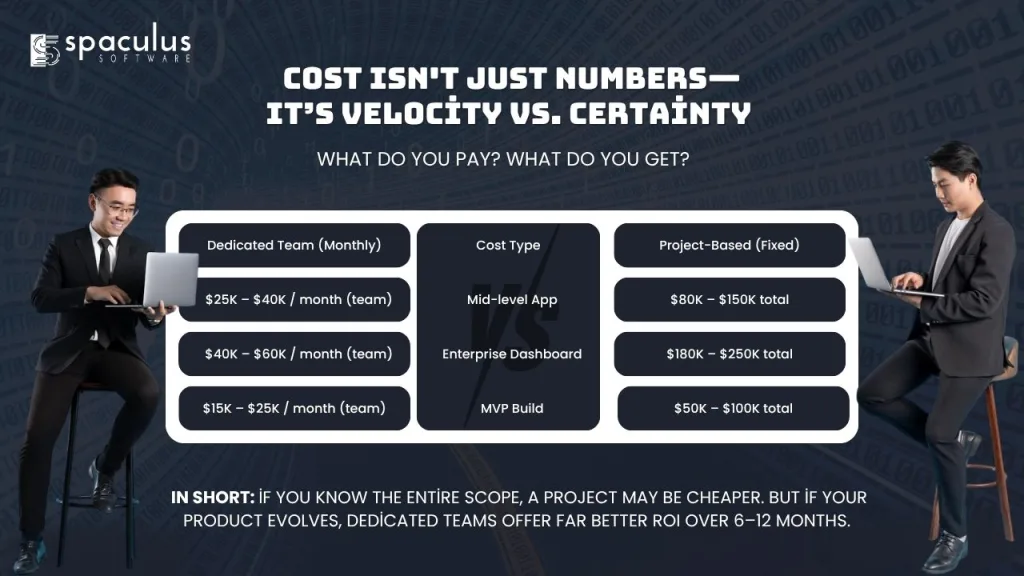
If you’re a founder, CTO, or business owner in July 2025, chances are you’ve already worked with developers—or plan to soon. Whether you’re building a real-time dashboard, a scalable SaaS product, or a mobile-responsive platform, you’ll likely be using the MEAN stack (MongoDB, Express, Angular, Node.js).
But before a single line of code is written, one key decision shapes everything that follows:
Should you hire a dedicated MEAN stack team, or should you go with a project-based engagement?
This isn’t a budget question—it’s a strategy question. And the right call can save you months of delays and thousands of dollars in avoidable rework.
These aren’t small updates—they affect how development should be structured, maintained, and evolved. If your team isn’t adaptive, your product will fall behind.
A dedicated team means you hire a group of developers, UI/UX designers, QA testers, and a project lead—who all work exclusively on your project. It’s like having an in-house team, except they’re remote and managed externally. If you’re aiming for long-term scalability and technical excellence, it’s smart to Hire MEAN Stack Developers who can bring your vision to life with precision and efficiency.
This is a fixed-scope development contract. You define what needs to be built, agree on deadlines and pricing, and the agency delivers that product—usually with minimal changes mid-way.
| Factor | Dedicated MEAN Stack Team | Project-Based Engagement |
| Team Structure | Full-time, assigned exclusively | Rotational or mixed teams |
| Pricing | Monthly/hourly retainer | Fixed cost with milestones |
| Scope Flexibility | Highly flexible | Rigid once approved |
| Speed of Updates | Daily or weekly sprints | Feature delivery tied to scope |
| Best Use Case | MVP, product scaling, evolving projects | One-off builds, fixed websites |

The 2025 Deloitte Tech Agility Report found that businesses using dedicated teams launched MVPs 28% faster on average compared to project-based models.
Why? Because dedicated teams don’t need to “re-learn” your product between updates. They’re already familiar with your stack, roadmap, and codebase. No onboarding lag. No context gaps.
Due to the rapid updates in MEAN stack components, most products need changes every 2–4 weeks—whether for:
Project-based contracts don’t include ongoing changes unless you pay extra. That slows momentum and increases cost.
Startups & Founders
Project-based engagements work well only when your requirement doesn’t change much. But if you realize mid-way that your end-user needs a new dashboard or admin panel?
With dedicated teams, someone always keeps an eye on versioning, database optimization, and Angular updates. That’s not the case in closed-scope contracts.
What Do You Pay? What Do You Get?
| Cost Type | Dedicated Team (Monthly) | Project-Based (Fixed) |
| Mid-level App | $25K – $40K / month (team) | $80K – $150K total |
| Enterprise Dashboard | $40K – $60K / month (team) | $180K – $250K total |
| MVP Build | $15K – $25K / month (team) | $50K – $100K total |
In short: if you know the entire scope, a project may be cheaper. But if your product evolves, dedicated teams offer far better ROI over 6–12 months.

“For any app that lives longer than six months, dedicated teams pay for themselves by sprint four. You stop losing time on handovers.”
– Maya Trivedi, Director of Engineering, BuildHub.io, July 11, 2025
“We shifted to project-based dev in 2024. Worked great—until the scope changed. Switched back to a dedicated model within 3 months.”
– Brian Cole, CTO at Finserve Ltd., quoted in Forbes, July 3, 2025
Not every company needs continuous evolution.
Think: one-time web forms, landing pages, report generators.
Think: SaaS tools, eCommerce platforms, CRMs, B2B web apps.
| Scenario | Dedicated Team Timeline | Project-Based Timeline |
| MVP Development | 4–6 weeks + iterations | 8–10 weeks (fixed) |
| Feature Expansion (Post MVP) | Bi-weekly sprints ongoing | New contract required |
| Bug Fix & Optimization | Same-day or next-sprint | Delayed unless covered |

Many believe dedicated teams are too expensive. But they forget to include:
The real cost is rarely in the invoice—it’s in momentum lost and features missed.
At Spaculus Software, we’ve built products in both formats for over 200+ clients. We don’t push one model—we evaluate what suits your stage and needs.
You shouldn’t choose based on pricing alone.
Instead, ask:
Your answers reveal your model.
Dedicated MEAN stack teams give you the agility to adapt, the talent to scale, and the continuity to deliver. They’re built for products that evolve, not projects that end.
But when time is short, scope is locked, and goals are fixed-project engagements still have their place.
Choose not based on trend but based on how fast you need to move-and how far you plan to go.
Hire mean stack Developers